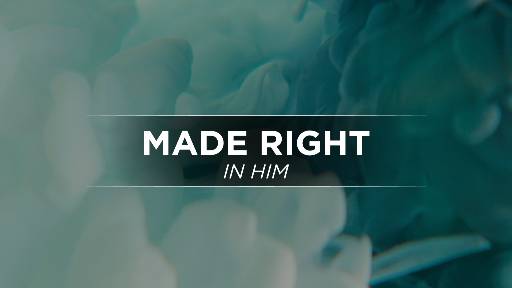-
The Peril Of Proud Praying! Series
Contributed by David Dykes on Nov 28, 2017 (message contributor)
Summary: The parable of the Pharisee and the Tax Collector is an interesting lesson about pride and humility, which raises three questions: (1) Why did you come to church? (2) What is your attitude in church? and (3) How will you go home?
The Peril of Proud Praying!
Luke 18:9-14
by Dr. David O. Dykes
INTRODUCTION
A man with three sons inherited a little over $1 billion dollars. Since he now had all this money, he offered to buy his sons anything they wanted. He stressed money was no object. His first son said he had always wanted a Jaguar, so his father bought him seven Jaguars in different colors, so he would have a different one to drive every day of the week. His second son wanted a motorcycle. So the father went out and bought him 30 new motorcycles, so he would have a different bike to ride every day of the month. His youngest was only 8, and he said he wanted a Mickey Mouse outfit. So his father went out and bought him the Dallas Cowboys.
Sadly, too many Christians have a Mickey Mouse prayer life. In the first eight verses of Luke 18, Jesus taught about the importance of praying persistently. Beginning in verse 9, he tells another parable about prayer.
To some who were confident of their own righteousness and looked down on everybody else, Jesus told this parable: “Two men went up to the temple to pray, one a Pharisee and the other a tax collector. The Pharisee stood up and prayed about himself: ‘God, I thank you that I am not like other men–robbers, evildoers, adulterers–or even like this tax collector. I fast twice a week and give a tenth of all I get.’
But the tax collector stood at a distance. He would not even look up to heaven, but beat his breast and said, ‘God, be merciful to me, a sinner.’
I tell you this man, rather than the other, went home justified before God. For everyone who exalts himself will be humbled, and he who humbles himself with be exalted.”
In Jesus’ time, the Pharisee would have been considered the good guy–he wore the white hat. He was a synagogue leader in his town. All Pharisees were super-religious men who were extremely careful about obeying the Torah, which is basically the first five books of the Old Testament. They also followed the Mishnah, which explained how to obey the Torah. There might be several chapters in the Misnah devoted to one single verse in the Torah. In addition, they followed the Talmud, which was a commentary on the Mishnah. These guys lived by the book!
However, a tax collector was considered the scum of the earth, the very bottom of the religious food chain in Israel. Hired by the pagan Romans, he could charge exorbitant taxes and keep most of the money for himself. He was considered the villain–he wore the black hat. If you had been a good Jew listening to Jesus, when he mentioned the Pharisee, you would have cheered, “Yeah! Hurrah for the good guy!” When He mentioned the tax collector you would have cried, “Boo! Hiss! Boo!” But Jesus is always full of surprises. He introduced a good guy and a bad guy, and by the time He finished the parable, the good guy had become the bad guy and the bad guy has become the good guy!
In case you still don’t get the picture, I’ve written a modern paraphrase of this parable. Having Eugene Petersen here this past week inspired me. Dr. Peterson’s paraphrase is The Message, but some of you will probably just call mine The Mess, because you may not like it very much. I call it “The Parable of the Deacon and the Drug Pusher.”
The Parable of the Deacon and the Drug Pusher
As Baptist Bob walked into church one Sunday morning, he was disgusted to see Larry Lowlife there, for Larry was a drug pusher who had just gotten out of jail. Bob warned some of the ushers to keep a close watch on Larry because he was a no-good crook.
Before the offering, it was Bob’s time to pray. He walked proudly to the microphone and began to pray using his religious tone of voice, “Heavenly Father, I thank Thee that I’ve been a deacon in this church for 20 years. I even remember when I built this building using my own two hands. And I thank Thee that I haven’t missed a single Sunday for over ten years. There were times, O Lord, when I was sick, but I came anyway. And Father, thou knowest I used to sing in the choir, until I was persecuted by the song leader who wouldn’t sing my style of music–but I can endure persecution just like Thou didest. Thou hast blessed me financially so I’ve been able to give you much more than 10 percent. I Thank thee that I’m morally pure for I don’t drink, and I don’t cuss on Sundays, and I don’t smoke unfiltered cigarettes and I don’t use drugs or sell them–like someone who is among today. Lord, we need more people just like me in our church. And, Lord, help everyone to come out tomorrow night at 7 p.m. at Oak Park field to watch our church softball team beat the Methodists again and bless the gift and the giver. AMEN.”

 Sermon Central
Sermon Central

